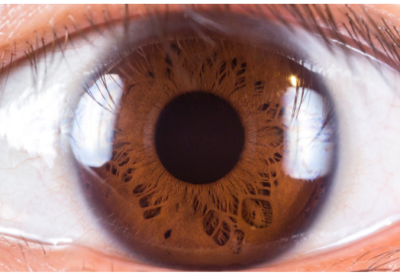Key Takeaways
- Photorefractive keratectomy (PRK) is a laser surgery that treats refractive vision issues (myopia, hyperopia, and astigmatism) by reshaping the cornea.
- The PRK procedure is very short, taking about 10 to 15 minutes, and involves removing the outer layer of the cornea and reshaping with a laser.
- The eligibility criteria for PRK requires that patients be over 18 years old, have stable eye prescriptions for a year and have healthy eyes and corneas.
- Recovery from PRK includes following specific care instructions, and it can take a month or more to experience vision improvement.
- The cost of PRK surgery can be different, and it depends on the experience of the surgeon as well as its location. The patient will pay for the initial examinations before surgery and the follow-up assessments.
Countless individuals all around the globe experience visual refractive errors like myopia (nearsightedness), hyperopia (farsightedness), and astigmatism (the shape of the eye that causes blurry vision). To correct these issues, people often rely on corrective eyewear such as glasses or contact lenses. However, there is now a remarkable way for individuals to overcome these visual refractive errors and embark on a renewed life.
This transformation is made possible through a widely practised form of refractive eye surgery called photorefractive keratectomy (PRK), which effectively addresses various vision problems. In this blog, we will understand the complexities of photorefractive keratectomy (PRK). We’ll explore its procedural aspects, factors influencing PRK eye surgery cost, and finally, the subsequent recovery process.
The Photorefractive Keratectomy or PRK Treatment Procedure
Photorefractive keratectomy or PRK treatment is a laser-based medical procedure used to treat myopia, hyperopia, and astigmatism with the excimer laser. The commonality among these three conditions is the eyes’ inability to refract light properly, resulting in reduced visual acuity. Photorefractive keratectomy or PRK treatment effectively addresses these concerns by precisely removing and sculpting corneal tissue using a computer-generated cold laser beam at a microscopic level.
The entire photorefractive keratectomy treatment itself is usually quite brief and lasts only 10 to 15 minutes. The ocular region is anaesthetized with drops, and then a lid retainer is placed to hold the eyelids in a retracted position. The surgeon starts by removing the outer layer of the cornea. This is followed by using laser to reshape it.
Afterwards, the surgeon administers nonsteroidal anti-inflammatory eye drops, antibiotic drops, and steroid drops to the treated eye. After the completion of the photorefractive keratectomy, a therapeutic contact lens is applied to the eye. Although the PRK laser eye surgery costs may vary, but this procedure must be considered due to its potential benefits.
Upon completion of photorefractive keratectomy or PRK treatment, patients may experience reduced reliance on corrective eyewear or only need them for specific tasks like reading or nocturnal driving.
Candidacy for Photorefractive Keratectomy or PRK Treatment
Before an individual undergoes photorefractive keratectomy, specific criteria must be met. Apart from engaging in a discussion with your ophthalmologist regarding anticipated outcomes, the following prerequisites are necessary:
- Possess healthy corneas.
- Exhibit overall ocular health.
- Maintain realistic expectations regarding the photorefractive keratectomy procedure, which the surgeon will thoroughly address in terms of anticipated outcomes and limitations.
- Must be 18 years old or above.
- Demonstrate eye prescription stability for a minimum of one year.
Meeting these criteria is important for any individual who desires to complete the payment of PRK laser eye surgery costs and subsequently undergo the procedure.
Recovery and Healing After Photorefractive Keratectomy
Following PRK treatment, the patient is advised to adhere to the following measures:
- Follow your surgeon’s recommendations and avoid any physical activity until advised otherwise.
- You may experience some pain for a few days, so take an over-the-counter pain reliever, or you may also get a prescription for eye drop pain relievers.
- Remember to protect your eyes outdoors by wearing sunglasses as advised by your healthcare provider. This precaution will help prevent any potential scarring on your corneas.
After three to five days, your vision will begin to improve. However, during this time, it may still appear blurry. It could take a month or even longer before you start noticing significant improvements in your vision.
PRK Eye Surgery Cost
The PRK eye surgery cost varies and depends upon a multitude of factors. But before undergoing the treatment, it is essential to assess the two main factors that influence the PRK laser eye surgery cost, which are outlined below:
-
Eye Surgeon’s Expertise:
The PRK laser eye surgery cost is primarily influenced by the surgeon’s experience. Surgeons who have performed laser refractive surgeries on numerous patients typically charge higher fees which, as a result, can increase the PRK eye surgery cost. While reputation alone is not the sole deciding factor for the PRK eye surgery cost, it is crucial for patients to feel confident in their surgeon’s expertise.
-
Location Influences PRK Eye Surgery Cost:
The area where your eye surgeon’s clinic or hospital is located greatly influences the PRK eye surgery cost. Generally, eye surgeries tend to be more expensive in major cities compared to rural areas.
Additional PRK Laser Eye Surgery Costs
When considering the PRK laser eye surgery cost, it’s important to be aware of additional costs. These expenses can vary depending on personal factors such as eye health and the overall success of the procedure.
-
Screening Eye Exam Cost
Before undergoing a photorefractive keratectomy, it is necessary to have an eye examination to determine if you are a suitable candidate. During this evaluation, the examiner will carefully assess your medical history and conduct precise measurements of your eyes. In the event that PRK is not deemed appropriate for you, the doctor may suggest an alternative procedure like LASIK.
-
Follow-up Care
After photorefractive keratectomy surgery, individuals will require prescription eye drops during the healing process. It is also important to schedule follow-up visits with an eye doctor to ensure a successful recovery. Although photorefractive keratectomy surgery carries a minor risk of complications, it is crucial to consider potential increased costs associated with follow-up care.
Photorefractive keratectomy (PRK) offers a transformative solution for common visual refractive errors like myopia, hyperopia, and astigmatism. If you are planning to get photorefractive keratectomy, then consulting our experienced ophthalmologists would be worth considering.
At Dr Agarwals Eye Hospital, our team of skilled professionals takes great pride in delivering advanced eye care with excellence. We highly value your vision and remain dedicated to providing exceptional eye care services. Don’t let visual refractive errors hold you back—begin your journey towards improved vision by visiting Dr Agarwals Eye Hospital today!









